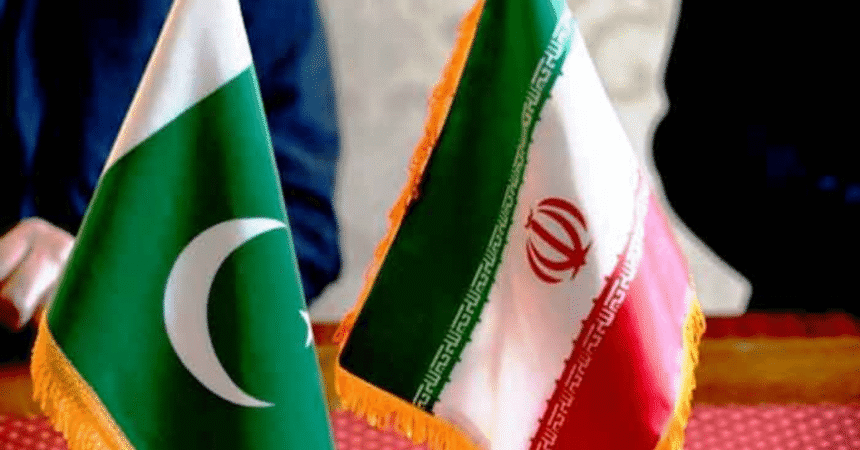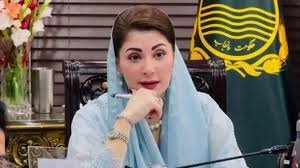In a pivotal meeting on the sidelines of the 79th session of the United Nations General Assembly in New York, Prime Minister Shehbaz Sharif of Pakistan and Iran’s President Dr. Masoud Pezeshkian engaged in discussions that underscore the importance of enhancing bilateral trade and cooperation between the two neighboring countries. This meeting highlights not only the significance of economic collaboration but also the necessity for a united stance on regional issues, particularly regarding Palestine.
Historical Context of Pakistan-Iran Relations
Pakistan and Iran share a long and intricate history characterized by cultural ties, economic partnerships, and geopolitical dynamics. Since Pakistan’s independence in 1947, both countries have maintained a generally cordial relationship, bolstered by shared cultural, religious, and historical ties. Iran was one of the first countries to recognize Pakistan, and over the decades, the two nations have cooperated in various sectors, including trade, energy, and security.
However, like any bilateral relationship, the partnership has faced challenges. Political changes, regional conflicts, and varying foreign policy orientations have sometimes strained relations. Despite these challenges, both nations continue to seek avenues for collaboration, recognizing that strengthening their partnership is vital for regional stability and economic development.
Recent Developments in Bilateral Trade
During the recent meeting, Prime Minister Sharif and President Pezeshkian placed a strong emphasis on boosting bilateral trade. Currently, trade between Pakistan and Iran is significantly below its potential, with estimates suggesting that it could reach up to $5 billion annually if barriers are removed and cooperation is enhanced.
The leaders discussed several key areas to increase trade, including:
- Elimination of Trade Barriers: Both sides acknowledged the need to address tariffs and non-tariff barriers that hinder trade. Streamlining customs procedures and reducing import/export duties could significantly enhance trade flows.
- Infrastructure Development: Improved infrastructure is crucial for facilitating trade. The leaders highlighted the importance of enhancing road and rail connectivity between the two countries. Projects like the Gwadar port in Pakistan could serve as a vital gateway for Iranian goods, while Iran’s Chabahar port could enhance Pakistan’s access to Central Asia.
- Sectoral Cooperation: Various sectors present opportunities for collaboration. Agriculture, textiles, pharmaceuticals, and energy are areas where both countries can benefit from sharing expertise and resources. For instance, Iran could help Pakistan develop its agricultural sector through technology transfer and investment.
- Trade Agreements: Revisiting existing trade agreements and exploring new ones could pave the way for increased economic interaction. The idea of forming a joint trade committee to regularly review and enhance trade agreements was also discussed.
- Promotion of Business Ties: Encouraging private sector engagement through trade fairs, business delegations, and investment forums could foster closer economic ties. By promoting direct interaction between businesses, both countries can identify new opportunities for collaboration.
Importance of Cultural and People-to-People Connections
Beyond economic discussions, Prime Minister Sharif emphasized the importance of cultural ties and people-to-people connections. Cultural diplomacy can play a crucial role in fostering understanding and cooperation between nations. Both countries share rich cultural heritages, with numerous commonalities in language, traditions, and religious practices.
Efforts to enhance cultural exchanges—such as educational scholarships, joint cultural events, and artistic collaborations—can strengthen the bond between the two nations. By fostering mutual respect and understanding, both countries can create a solid foundation for long-term cooperation.
Regional Stability and the Palestinian Cause
A critical aspect of the discussions between the two leaders was the issue of regional stability, particularly the ongoing conflict in Palestine. Prime Minister Sharif reiterated Pakistan’s steadfast support for the Palestinian cause, calling for an immediate humanitarian ceasefire in Gaza and an end to aggression against Palestine and Lebanon.
The situation in Palestine has been a longstanding concern for Pakistan, which has consistently advocated for the rights of the Palestinian people. The Prime Minister’s call for a ceasefire is not only a humanitarian plea but also an appeal for justice and peace in a region marked by conflict and instability.
Both leaders expressed their commitment to work together on regional issues, recognizing that cooperation between Pakistan and Iran can significantly contribute to peace and stability in the Middle East. Their united stance on Palestine exemplifies the potential for collaborative efforts in addressing pressing regional challenges.
Strategic Importance of Pakistan-Iran Relations
The geographical positioning of both countries adds another layer of significance to their relationship. Pakistan and Iran share a border that stretches over 900 kilometers, making them natural partners in trade and security. Enhancing bilateral relations is not only beneficial for economic development but also crucial for regional security.
Given the current geopolitical landscape, including the withdrawal of international forces from Afghanistan and the evolving dynamics in Central Asia, both Pakistan and Iran have a vested interest in collaborating on security issues. By working together to address common threats such as terrorism and drug trafficking, they can enhance their national security and contribute to regional stability.
Challenges Ahead
While the recent meeting between Prime Minister Sharif and President Pezeshkian lays a positive groundwork for future cooperation, several challenges remain.
- Geopolitical Tensions: Regional tensions, particularly involving other countries like India and Saudi Arabia, can complicate bilateral relations. Navigating these dynamics requires careful diplomacy and a commitment to mutual respect.
- Economic Instability: Both countries face economic challenges that can hinder trade initiatives. Addressing domestic economic issues is crucial to creating an environment conducive to enhanced bilateral trade.
- Infrastructure Gaps: The lack of adequate infrastructure poses a significant challenge to trade and connectivity. Addressing these gaps requires substantial investment and coordinated planning.
- Political Will: Sustained political will on both sides is essential to overcome bureaucratic hurdles and implement the necessary changes to enhance bilateral trade and cooperation.
Future Prospects
Looking ahead, the potential for deeper collaboration between Pakistan and Iran is promising. The recent discussions highlight a mutual understanding of the importance of strengthening ties in various sectors, particularly trade, culture, and regional security.
As both countries explore avenues for collaboration, the following steps could be beneficial:
- Regular High-Level Meetings: Establishing a framework for regular high-level meetings between leaders and ministers can help maintain momentum in bilateral relations and address emerging challenges proactively.
- Joint Working Groups: Forming joint working groups focused on specific sectors—such as trade, culture, and security—can facilitate targeted cooperation and result in tangible outcomes.
- Public Engagement: Increasing public awareness and engagement through media campaigns and educational initiatives can foster a positive narrative around Pakistan-Iran relations and encourage people-to-people connections.
- Investment in Joint Projects: Identifying and investing in joint projects—such as infrastructure developments or energy initiatives—can provide mutual economic benefits and enhance cooperation.
- Monitoring and Evaluation: Implementing a robust monitoring and evaluation mechanism can help assess the progress of initiatives and adjust strategies as needed to achieve desired outcomes.
The recent meeting between Prime Minister Shehbaz Sharif and President Dr. Masoud Pezeshkian underscores the commitment of both nations to strengthen their bilateral ties, particularly in the realm of trade and economic cooperation. By recognizing the potential for mutual benefits and addressing regional challenges together, Pakistan and Iran can pave the way for a more prosperous and stable future.
The emphasis on enhancing trade, cultural ties, and a united stance on regional issues like Palestine demonstrates a holistic approach to foreign relations. As both countries navigate the complexities of their relationship, the potential for greater collaboration remains strong, offering opportunities for economic growth and regional stability.
#PakistanIran #BilateralTrade #EconomicCooperation #CulturalTies #UNGA79 #RegionalStability #Palestine







